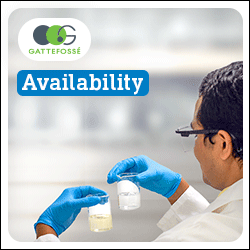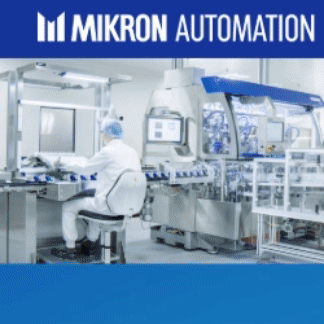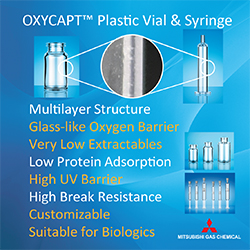Indaptus Therapeutics Announces Initiation of First-In-Human, Open Label, Dose Escalation & Expansion Multicenter Phase 1 Clinical Trial of Decoy20 in Patients With Advanced Solid Tumors
Indaptus Therapeutics, Inc. recently announced the initiation of INDP-D101, its first-in-human, open-label, dose escalation and expansion, multicenter Phase 1 clinical trial of its lead compound Decoy20 in patients with advanced/metastatic solid tumors. The USC Norris Cancer Center in Los Angeles, California is the first activated clinical trial site that has been opened for patient enrollment, and patient screening is expected soon.
The study’s objectives are to assess the safety and tolerability of Decoy20, to determine the maximum tolerated dose (MTD) and recommended phase 2 dose (RP2D), as well as to assess Decoy20 pharmacokinetics (PK), pharmacodynamics and clinical activity.
“The initiation of the dose-escalation part of our first-in-human Phase 1 trial of Decoy20 marks an important milestone in our early efforts to identify and study novel drugs for patients with solid tumors who have exhausted known life-prolonging treatment options and are thus facing poor prognosis. Based on the substantial preclinical data demonstrating safety and activity of Decoy20 alone and in combination with other oncology drugs, we are encouraged by the potential Decoy20 holds for those patients. In addition, evaluating Decoy20 in patients with advanced and metastatic solid tumors is an important initial step in our efforts to understand the potential of this investigational medicine to treat a broad range of cancers. We look forward to advancing to the expansion portion of the trial once the appropriate dose is identified,” said Boyan Litchev, MD, Chief Medical Officer, Indaptus.
The Phase 1 study will begin with a single dose escalation part followed by an expansion part with continuous administration of Decoy20. The study will enroll patients with advanced/metastatic solid tumors, who have exhausted the other known treatment options. More information can be found at www.clinicaltrials.gov.
Primary endpoint of the study is incidence, relatedness and severity of adverse events and treatment-emergent adverse events and determining the number of subjects per cohort with dose-limiting toxicity-based adverse events. Secondary endpoints include the incidence of anti-drug antibodies and neutralizing antibodies pre- and post-treatment, change in Decoy20 PK parameters over time, objective response rate in subjects with measurable disease and duration of response. More information can be found at www.clinicaltrials.gov.
“We believe the Decoy approach to immuno-oncology is an innovative and we are very proud of our rapid journey from our IND application to initiation of the study. We have designed a very flexible and comprehensive initial human trial for the compound, and we look forward to reporting initial cohort results in 2023. In the meantime, we wish to thank Dr. Michael Newman, the inventor of Decoy and our Chief Science Officer, Dr. Boyan Litchev, M.D. our Chief Medical Officer, the entire science and clinical development team, our talented investigators, and our participating centers for their dedication and collaboration toward initiating this trial,” added Jeffrey Meckler, Indaptus Therapeutics’ Chief Executive Officer.
Indaptus Therapeutics has evolved from more than a century of immunotherapy advances. The Company’s novel approach is based on the hypothesis that efficient activation of both innate and adaptive immune cells and pathways and the associated anti-tumor and anti-viral immune responses will require a multi-targeted package of immune system activating signals that can be administered safely intravenously. Indaptus’ patented technology is composed of single strains of attenuated and killed, non-pathogenic, Gram-negative bacteria to produce a multiple TLR agonist Decoy platform, with expected reduced systemic toxicity, and ability to prime or activate many of the cells and pathways of innate and adaptive immunity. Decoy20 represents an antigen-agnostic technology that has produced in pre-clinical studies single agent activity against metastatic pancreatic and orthotopic colorectal carcinomas, single agent eradication of established, antigen-expressing breast carcinoma, as well as combination-mediated eradication of established hepatocellular carcinomas and non-Hodgkin’s lymphomas with standard pre-clinical models, including syngeneic mouse tumors and human tumor xenografts. In those pre-clinical studies tumor eradication has been observed with Decoy products in combination with anti-PD-1 checkpoint therapy, low-dose chemotherapy, non-steroidal anti-inflammatory drug or an approved targeted antibody. Combination-based tumor eradication produces innate and adaptive immunological memory, involves activation of both innate and adaptive immune cells and is associated with induction of innate and adaptive immune pathways in tumors after only one i.v. dose of Decoy product, with associated “cold” to “hot” tumor inflammation signature transition. IND-enabling toxicology studies have demonstrated safe iv administration, with no sustained induction of hallmarks of cytokine release syndromes, possibly due to passive targeting to liver, spleen and tumor, followed by rapid elimination of the product. Indaptus products have also produced significant single agent activity against chronic hepatitis B virus (HBV) and chronic human immunodeficiency virus (HIV) infections in pre-clinical models.
Total Page Views: 440













